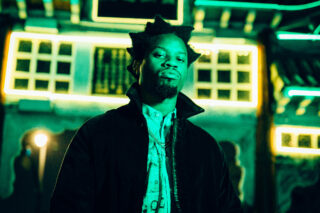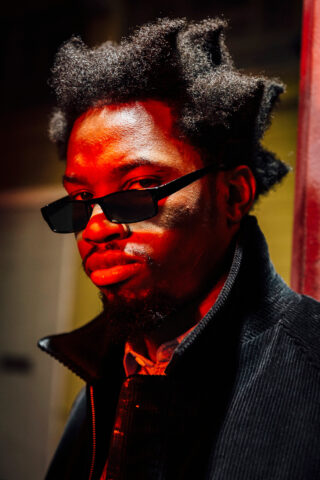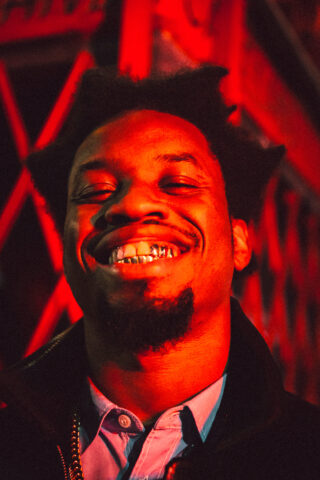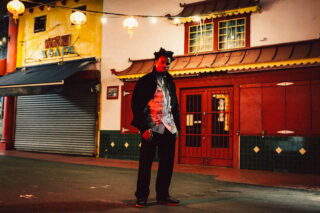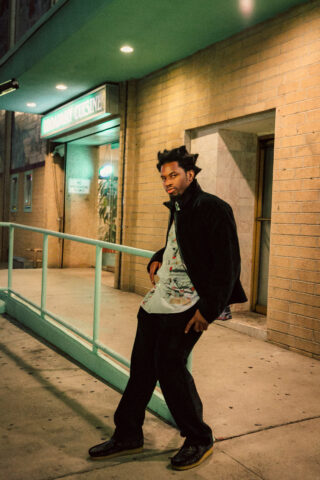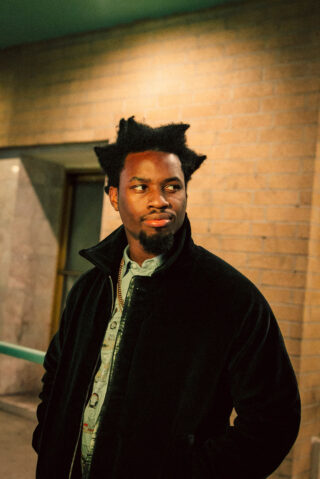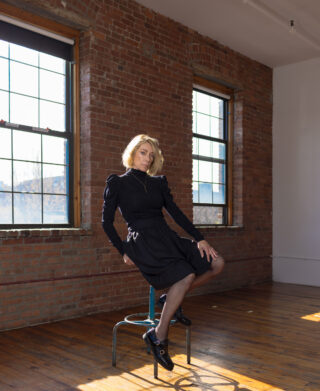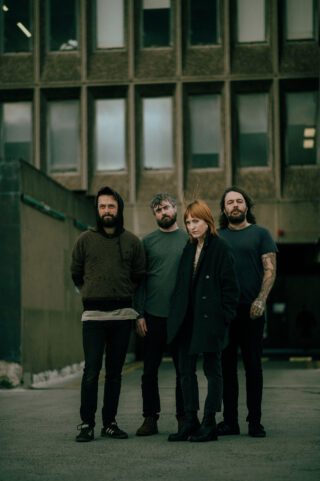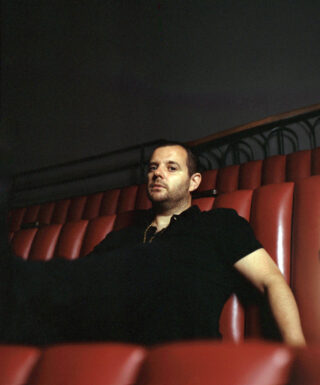The new generation that Curry was said to represent in the middle of the last decade has often been lazily described, and often dismissed, as ‘Soundcloud rap’, a self-made, lo-fi form of hip-hop that gravitated towards woozy, ambient atmospheres and emotive, melodic vocals. In truth, Curry’s music was always an outlier among the group, having always had more to do with hardcore and drill than many of his contemporaries. Nevertheless, he saw some of his peers such as the late XXXTentacion, a former housemate of Curry’s, shoot into superstardom in a short space of time, leaving Curry in a difficult position.
“I just wish my attitude would have been better,” he says. “I felt like the world and all these artists owed me, but truthfully, they didn’t owe me shit. I was just dealing with my own depression at the time, which I didn’t know. I didn’t appreciate that moment and I can’t get those moments back.”
Along with embracing therapy, he credits taking up the martial art Muay Thai in 2017 with improving his mental state in this regard. The added perspective of having had a few years to reflect on the sudden impact of being at the centre of such a whirlwind has also helped him to realise that it is the long game that matters the most to him.
“I’m still here, still on the up and up. It’s like what Nipsey [Hussle] said, I’d rather get slow money than fast money, because with slow money, it’s going to always come in. Fast money, you get it one day and it’s gone the next day. I take pride in being the tortoise, because slow and steady does win the race. It’s about pacing yourself; a lot of these guys are burnt out because they didn’t pace themselves.”
“I had to make those records first to make this one, I had to mature first. Back then, I was still trying to be the man, trying to be like my peers. I wasn’t playing the game right, I should’ve just been myself the whole time. This is the overall theme of the album: me becoming a man and the future that lies ahead for me, good or bad. I turned 25 while recording this album, this is the age that Tupac died at. Reaching a quarter of a century is the primary focus, and dealing with the past along the way.”
The image of a man on a long quest to find out who he really is forms the basis of the video for the album’s lead single, ‘Walkin’, in which Curry is seen walking alone through a spaghetti Western landscape, like Harry Dean Stanton at the start of Wim Wenders’ cult 1984 road movie, Paris, Texas. Curry considers the video to be a trailer for the album at large, the message of the whole project in a snapshot.
Cinema has been a constant presence in Curry’s music since day one and Make My Eyez is no exception. One track is named ‘Sanjuro’, after the 1962 Akira Kurosawa jidaigeki classic, starring Curry’s favourite actor, Toshiro Mifune, whose name and work is woven through the album like gossamer thread.
“I watched a documentary called Mifune: The Last Samurai and it gave me the knowledge I needed to know that my records need to move. Art needs to have movement at all times,” he says. It bleeds into his other creative endeavours, too, including a series of manga-inspired comic books that he and his friends work on during the creative process. The two pursuits work as respite for each other; at the first sign of burnout with his music, he turns his attention to the comic books, and vice versa, ensuring that his artistic drive never lulls.
It is the same desire to heighten his focus at all times that drove his decision to leave Florida and relocate to Los Angeles five years ago. “You eventually outgrow your city and if you don’t leave, you’re going to be stagnant,” he says. “Anyway, the majority of people I want to work with are out here. They weren’t in Miami, they go to Miami to get away from work!”
Muay Thai has taught Denzel Curry the importance of knowing when to strike, and judging by the enthusiasm in his voice whenever he speaks about Melt My Eyez, See Your Future, he knows that this time he is about to land a haymaker.
If there is any anxiety at all, it is just in the form of impatience that it has taken this long for the world to get to hear it. “I just want this material out, and I want people to listen to it. I’m not playing with nobody. Once they see the videos, that’s going to be the point where they see, I’m not like none of you.”
He pauses, and you wonder if the ‘you’ in question still refers to his peer group that he feels never quite granted him the credit that he deserved.
“This is the year when they’ll stop trying me and start respecting me,” he continues, his voice speeding up. “I know with this record, there’s nothing to worry about. They’re going to like this, there’s no hating on this.
“I’m pretty sure this is the one album that’s undeniable. This is good. And I’m going to make a better album after this.”
From the cover of Loud And Quiet 151. Order a copy here




